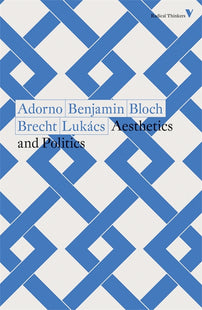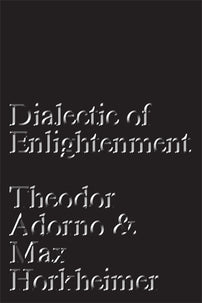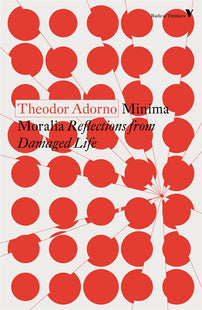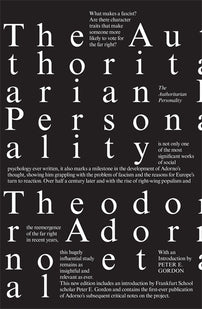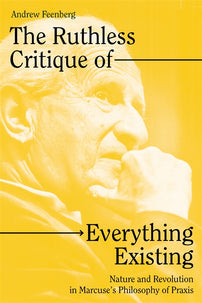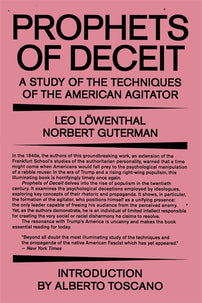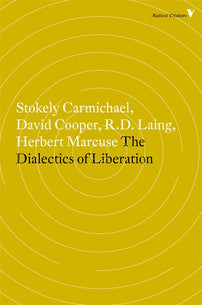Herbert Marcuse, a thinker to wake up the left
Herbert Marcuse's ideas animated young people's protests in 1968, but today he's rarely discussed. Simon Blin argues that it's time to return to Marcuse's radical ideas in order to think anew about the struggles we face today.

**This article was originally published by Libération on 20 July 2022
A figure of protest in the 1970s, the German philosopher who became a naturalised American has gradually been marginalised. However, his avant-garde ideas on technology and emancipation have much to inspire current mobilisations, from abortion to purchasing power.
Is it because Marcuse is an antidote to reactionary thinking that nobody talks about him anymore? He could certainly weigh in against polemicists who attack ‘1968’ from their hegemonic position in the media. The naturalised German-American philosopher would have found ridiculous the false dilemma between ‘economic’ and ‘cultural’ questions, imposed with bad faith by conservative ideologists on new progressive militants. He would have replied that the liberation of bodies requires improvement of the material conditions of existence, and vice versa. More than forty years after his death in 1979, this Frankfurt School theorist – not the best known of the bunch – still has things to say to the left, dismayed to hear that it has abandoned the class struggle for the war of the sexes. As if the two were necessarily incompatible.
Proof of the contrary is found in Eros and Civilization, published in 1955 and translated into French eight years later. In it, Herbert Marcuse synthesises Marx and Freud, denouncing what he calls the ‘surplus repression’ of the instincts exercised by social domination in modern industrial society. ‘In the 1950s, Marcuse pointed out what some people seem to have rediscovered in the last ten years,’ notes the philosopher Michaël Fœssel, who quotes the thinker several times in his latest book Quartier rouge: le plaisir et la gauche. ‘Homo economicus reduces the entire field of experience, including pleasure, to the sole principle of profit.’ Capital has entered bodies, individual behaviour and psyches, to the point that it has ended up subjecting erotic and social life to the criterion of profitability. A banal observation in the era of all-out consumerism, but a pioneering one at the dawn of May ’68.
[book-strip index="1" style="display"]Prophet of American youth
It was the publication of One-Dimensional Man, in the year of student revolts and workers’ strikes, that established Marcuse as the master thinker of the protest movements of the 1960s and 1970s – from Paris to Berlin, via Rome and Berkeley. This specialist in Hegel, whose thought was demanding and sometimes difficult, like that of his colleagues at the Frankfurt Institute for Social Research, Theodor Adorno, Max Horkheimer and Walter Benjamin, enjoyed worldwide success. A pessimistic – he would have said ‘realist’ – philosopher, Marcuse believed that by adhering to the role of producer/consumer, individuals had integrated capitalism, which had anaesthetised any revolutionary force by making people accept the idea that it was impossible to overcome it as a social organisation. Society is thus alienated from itself: it is ‘one-dimensional’ and incapable of renouncing material, objective and immediate comfort. Fifty years later, his intuition has not aged a bit.
Marcuse’s work is permeated by a timeless question: how can we subjectively consent to a system that is objectively unfavourable to us? This question had been at the heart of Marcuse’s theory since the 1930s. The starting point of his political reflection was the election of Adolf Hitler. Born into a bourgeois Jewish family in Berlin in 1898, and author of a doctoral thesis under the direction of Martin Heidegger, he was forced into exile when the Nazis came to power, first in Switzerland, then in the United States. During the war, Marcuse worked with the Office of Strategic Services (the forerunner of the CIA) to help the Americans understand Nazism. The Soviets treated him as an enemy. A ‘libertarian socialist’, he was in fact as critical of the Western bloc as he was defiant of the USSR. After teaching at several American universities, including Harvard and Columbia, he settled in San Diego, California. The angry student youth, driven by feminism, anti-militarism and anti-imperialism, saw in him their new prophet. This led Ronald Reagan, governor of California, to call for his expulsion from the university, with the support of the anti-communist Christian right.
Obviously, Marcuse’s activism and his central role in the emergence of the New Left upset any kind of conservatism. One has to imagine a figure similar to Alain Badiou – white hair above an aged face, academic jacket, dark tie on a light shirt, smoking a cigar or a pipe like a wise old man. Or with hands clasped on the lectern in a New York or Berlin auditorium, with some hundreds of students listening religiously to him talk about ‘instinctual rebellion’, ‘repressive desublimation’ or ‘libidinal satisfaction’. If the words used by Marcuse have since fallen into disuse – which does not help in rescuing his arguments from oblivion – and if his commitment to collective emancipation was shattered after his death by the advent of neoliberalism and contemporary individualism, the radicality of his thought and his presentiments of a future society have never been obsolete.
Unifying the dominant themes
They are even remarkably topical. A multidisciplinary, multidimensional thinker, Marcuse was one of the first to shred the idea of scientific neutrality, putting the critique of technical progress back on the table after it had been dismissed by left-wing movements of the early twentieth century. ‘He was always very sceptical about the idea that man could conquer nature through technology,’ explains the American philosopher Andrew Feenberg, who was his assistant from 1965 to 1973 and has devoted to Marcuse his forthcoming book, The Ruthless Critique of Everything Existing. ‘This challenge to “techno-solutionism” may seem a bit conventional in 2022, but in the 1960s nobody agreed with it.’ For Marcuse, the hypothesis of a ‘capitalist misuse’ of technology was already a wrong track, assuming that technology was inherently good. For his part, he saw technology is ideologically oriented, not a domain outside of society. This was his main contribution to the subject.
According to Marcuse, it was Western science that gave birth to capitalism through its propensity to seize nature as a set of objects available to man. This created artificial needs that were not only alienating for the individual but also ecologically harmful for the planet, since their proliferation led to the depletion of natural resources and increased pollution. A theory of needs that inspired the philosopher André Gorz, pioneer of political ecology in France. ‘We are all children of Marcuse,’ Gorz wrote in the Nouvel Observateur on 6 August 1979, a few days after Marcuse’s death in Starnberg, near Munich. ‘It is from Marcuse that we have inherited the dominant themes that make up the sensibility of this era and the ability to unify them through thought. Very few authors have had such a profound impact on their time, while being so little read and almost never quoted.’
[book-strip index="2" style="display"]‘A dialectical thinker par excellence’
Nor should Marcuse’s ideas leave opponents of sexism and patriarchal society indifferent. The feminist theorist Monique Wittig was quite right to translate One-Dimensional Man into French. Marcuse’s critique of a sexuality steered by the imperative of reproduction – with pleasure reduced to a socially useful end – broke with the dominant ideals of the mid-twentieth century, when abortion was illegal and large families the norm. But the emergence of a totally liberated and egalitarian society requires more than the divorce of sexuality from reproduction facilitated by contraception. Sexual pleasure must not remain exclusively defined by the male experience, which is a new form of alienation. This is how we see Marcuse again in recent feminist literature, in the work of the researcher Cornélia Möser and her recently published Libérations sexuelles, as well as in the unambiguously titled essay by the English philosopher Nina Power, One Dimensional Woman.
But Marcuse was not naive. He never imagined that lifting sexual taboos would be enough to transform the world. ‘He was a dialectical thinker par excellence,’ emphasises Michaël Fœssel. ‘He sought to analyse reality without ignoring its contradictions, which he identified and tried to overcome. He was one of the first to show that the body is a force of contestation, as long as its domestication is criticised.’ This is a useful approach for thwarting reactionary condemnation of progressive ‘excesses’ and ‘hypocrisies’ – targeted above all because they are processes of emancipation, rather than for the caricatures they produce. ‘The conservative backlash we’ve been witnessing in the US and Europe in recent years is working to marginalise radical left-wing thought and its way of pointing out new forms of oppression,’ observes Andrew Feenberg from his Californian retreat. ‘It has a vested interest in not reawakening Marcuse.’ It’s easy to see why.
Translated by David Fernbach

